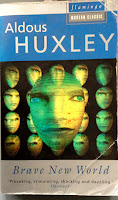We Can Wage War for You Wholesale

The machines in this case exhibit not only vast intelligence but also considerable wisdom that far exceeds the purpose for which they were built and the algorithms that defined them. They have apparently acquired such wisdom by somehow transitioning from syntactics to semantics, gaining an ability to possess content and meaning. The leadys are not just a brain in a vat anymore; they are persons (or even better?) Will machines take over the world one day? This question has been in the news recently with leading thinkers like Professor Stephen Hawking and Elon Musk of Tesla expressing the worry that uncontrolled evolution of machine intelligence may one day presage the end of humanity. [i] This fear of rampant technology ruling the world is however is not of recent vintage, especially among the literati. Writers ranging from HG Wells and Aldous Huxley to more recent ones like Arthur C Clarke and scientist and writer Baroness Susan Greenfield have produced some well-known an...



